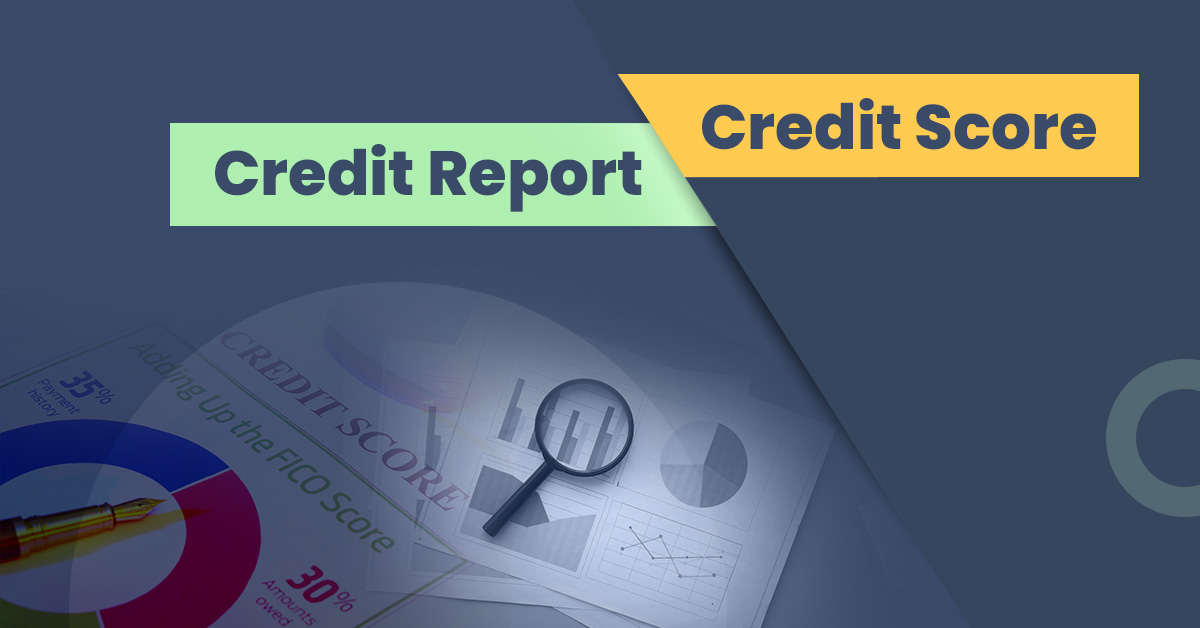Credit Score Vs Credit Report: What’s the Difference?


Credit score vs credit report play a significant role when individuals apply for any form of credit. This article highlights the differences between a credit report and a credit score.
What is a Credit Score?
The credit score is a three-digit numerical value that indicates the risk factor associated with lending money to an individual. The top credit bureaus in India (TransUnion CIBIL, Experian, CRIF Highmark and Equifax) evaluate an individual’s credit score. The score generally ranges between 300 to 900, where anything above 750 is a good score. While a credit score above 800 is considered exceptional. For a new borrower, the score might be 0 or -1.
The credit score of an individual depends on several factors, such as:
- The repayment history of a person and whether or not they have defaulted on any of the past credits.
- An individual’s credit utilisation ratio indicates the amount of credit used against the total credit limit.
- The number of hard inquiries on your credit report shows the frequency of recent credit applications.
- The age of the credit accounts.
- The credit mix of an individual – a combination of unsecured and secured credits.
What is a Credit Report?
The credit report gives comprehensive information about the records of an individual concerning their credit/loan history, including identity information, credit accounts, repayment track, and recent enquiries. Credit reporting agencies gather the financial details about an individual from Banks and NBFCs. Based on a credit report, the lending partner evaluates the loan amount, interest rate, and offers that an applicant should get.
A candidate’s credit report contains the following information:
Personal information
- The name of the applicant, including the name and nickname used in credit accounts
- Current and previous residential address
- Date of birth
- Permanent Account Number (PAN)
- Phone numbers
Credit account details
- Creditor’s name
- Present and previous credit accounts, along with the account type (instalment, mortgage, revolving or other)
- The total credit limit of an account
- Amount Outstanding
- Account repayment history
- No. of days overdue
- Overdue amount
- The opening and closing date of an account
Also Read: 11 Common Myths about Credit Score
Differences between a Credit Score and a Credit Report
The table below shows the key differences between a credit score and a credit report:
| Credit score | Credit report |
| The score is a numerical value provided to an individual based on the information available on their credit report. | The credit report contains information from the credit bureau’s database. These bureaus collect data from financial institutions about customers’ financial activities. |
| Financial institutions use credit scores to understand an applicant’s creditworthiness and the risk factors associated with giving them credit. | Your credit report provides detailed information on your financial history with loans, credit cards, etc |
| The credit score is usually evaluated based on five factors: owned accounts, payment history, credit mix, length of credit accounts and new credit accounts | The information in a credit report accounts for four factors: credit accounts, public records, credit inquiries and identifying information. |
Final Words
The credit score gives an idea about the creditworthiness of an individual. On the other hand, the credit report enables the customer to get all the information related to their past and present financial activities. Hence, one should track their credit scores and credit reports periodically. At times, it helps to point out the errors in the credit reports and improve credit scores.
Frequently Asked Questions
Are CIBIL scores and credit reports the same thing?
The credit report is detailed information about the credit behaviour and activities of a candidate. On the other hand, the CIBIL score is a numerical score provided to individuals based on the information on their credit reports. Also, CIBIL is one of few credit information companies (CIC), as mentioned above, that provide a credit score. The other CICs like Experian, CRIF and Equifax also provide a credit/bureau score
Can I check my CIBIL score for free?
You can check your CIBIL score online for free of cost only once a year. However, if you wish to evaluate your CIBIL score more than once a year, you can opt for a subscription plan.
Is 815 a good CIBIL score?
A CIBIL score of 800 and above is an excellent score. Applicants with such CIBIL scores get quick loan approvals along with several other benefits, such as longer repayment tenure, low-interest rates, etc.
What is a good CIBIL score to opt for a loan in India?
Generally, having a CIBIL score of 750 or above helps in getting higher loans at affordable interest rates from financial institutions.




